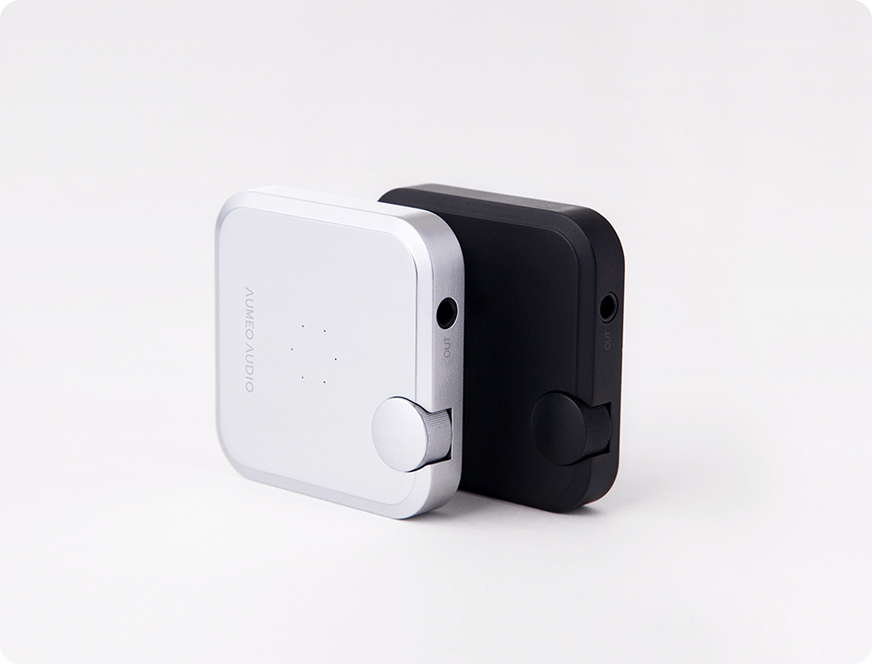Project Overview
Develop an event management website that provides real-time ticket booking, event calendars, and push notifications, along with PWA features for offline access. The platform will enable users to browse events, purchase tickets, receive updates, and manage their bookings seamlessly across devices.
Project Requirements
- Functional Requirements
- User Management:
- User registration, login, and profile management.
- Social media login integration.
- Role-based access control (Admin, Event Organizer, Attendee).
- Event Listing & Management:
- Create, update, and manage event listings with detailed descriptions, images, and videos.
- Categorization of events by type, location, date, and organizer.
- Event schedules and calendars for easy navigation.
- Real-Time Ticket Booking:
- Secure real-time ticket booking system with seat selection.
- Integration with payment gateways for ticket purchases.
- E-ticket generation and QR code for entry.
- Event Calendars:
- Dynamic event calendars displaying upcoming and past events.
- Filter events by date, category, and location.
- Sync events with Google Calendar, Outlook, etc.
- PWA Features:
- Offline access to event information and tickets.
- Push notifications for event updates, reminders, and special offers.
- Home screen installation prompt for mobile users.
- Notifications & Reminders:
- Push notifications for event reminders, ticket confirmations, and updates.
- Email notifications for booking confirmations and updates.
- Social Sharing & Engagement:
- Share events on social media platforms.
- Engage with other attendees through comments and discussion forums.
- Review and rate events post-attendance.
- Analytics & Reporting:
- Track ticket sales, event attendance, and user engagement.
- Organizer dashboards with insights into event performance.
- Integration with Google Analytics for additional insights.
- Non-Functional Requirements
- Scalability:
- Handle high traffic during event announcements and ticket sales.
- Cloud-based hosting with auto-scaling features.
- Security:
- Secure user authentication and data encryption.
- Compliance with payment processing standards (e.g., PCI-DSS).
- Performance:
- Fast loading times and responsive design.
- Efficient database queries and caching mechanisms.
- Reliability:
- High availability with minimal downtime, especially during peak booking times.
- Data backup and disaster recovery plan.
- Accessibility:
- Compliance with WCAG 2.1 standards.
- Multi-language support.
Features
- User Interface (UI):
- Responsive Design: Adapts to various screen sizes and devices.
- Intuitive Navigation: Easy access to event listings, calendars, and user profiles.
- Search & Filter: Advanced search with filters for event type, location, date, and organizer.
- User Dashboard: Personalized dashboard for managing bookings, tickets, and preferences.
- Event Listing & Management:
- Event Creation: Allow organizers to create and manage events with detailed descriptions, images, and videos.
- Categorization: Organize events by type (concerts, conferences, sports), location, and date.
- Event Schedules: Display event timelines, sessions, and related activities.
- Real-Time Ticket Booking:
- Ticket Availability: Display real-time ticket availability and pricing.
- Seat Selection: Interactive seat maps for selecting seats during booking.
- Payment Integration: Secure payment processing with support for multiple payment methods.
- E-Tickets: Generate and send e-tickets with QR codes for event entry.
- Event Calendars:
- Dynamic Calendar: Display events in a monthly, weekly, or daily view.
- Filters: Allow users to filter events by category, date, and location.
- Sync with Personal Calendars: Integration with Google Calendar, Outlook, etc., for event reminders.
- PWA Features:
- Offline Access: Users can access event details and tickets offline.
- Push Notifications: Notify users about event updates, reminders, and special offers.
- Installable: Users can install the website as an app on their devices.
- Notifications & Reminders:
- Push Notifications: Alerts for new events, booking confirmations, and reminders.
- Email Notifications: Automatic emails for booking confirmations, event updates, and reminders.
- Social Sharing & Engagement:
- Social Media Integration: Share events on platforms like Facebook, Twitter, and Instagram.
- Comments & Reviews: Allow users to comment on events, engage with other attendees, and leave reviews.
- Discussion Forums: Enable event-specific forums for attendee interaction.
- Analytics & Reporting:
- Sales Tracking: Monitor ticket sales in real-time.
- User Engagement: Track user activity, event views, and booking patterns.
- Organizer Dashboard: Provide insights into event performance, attendee demographics, and feedback.
Implementation of Development
- Technology Stack
- Frontend:
- React.js/Angular/Vue.js: For building a responsive, dynamic user interface.
- Redux/Vuex (for Vue.js): For state management and synchronizing data across the application.
- HTML5/CSS3: For structuring and styling UI components, event calendars, and booking interfaces.
- Leaflet.js/Google Maps API: For integrating event location maps.
- Service Workers: For PWA features like offline access and background sync.
- WebSockets: For real-time ticket booking updates.
- Backend:
- Node.js with Express.js: For managing API requests, user authentication, event management, and payment processing.
- GraphQL/RESTful API: For efficient data fetching and managing communication between the frontend and backend.
- MongoDB/PostgreSQL: For storing event data, user information, and ticket bookings.
- Redis/Memcached: For caching frequently accessed data and improving performance.
- WebSockets/Socket.io: For enabling real-time ticket booking and seat selection.
- OAuth 2.0: For secure user authentication and social media login integration.
- Stripe/PayPal API: For secure payment processing.
- Firebase Cloud Messaging (FCM)/OneSignal: For managing push notifications.
- Elasticsearch: For advanced search capabilities and filtering event listings.
- AWS S3/Cloudinary: For storing event images, videos, and downloadable materials.
- Development Phases
- Phase 1: Requirements Gathering & Planning
- Define project scope, user stories, and technical requirements.
- Create wireframes, UI/UX designs, and interactive prototypes.
- Plan development sprints and set up project management tools.
- Phase 2: Frontend & Backend Development
- Frontend Development:
- Implement the user interface with responsive design principles.
- Integrate event calendars and real-time ticket booking interfaces.
- Develop PWA features for offline access and push notifications.
- Backend Development:
- Develop the backend API for user management, event management, and ticket booking.
- Integrate MongoDB/PostgreSQL for managing event data, user profiles, and bookings.
- Implement real-time features with WebSockets/Socket.io.
- Phase 3: PWA Features Implementation
- Add service workers for offline functionality.
- Implement push notifications and web app manifest.
- Test PWA features across different devices and browsers.
- Phase 4: Payment Integration
- Implement payment gateway integration with Stripe or PayPal.
- Develop ticket management and invoicing features.
- Set up secure payment processing and data handling.
- Phase 5: Testing & Deployment
- Conduct unit, integration, and user acceptance testing.
- Optimize for performance, security, and SEO.
- Deploy the platform on a cloud hosting service with continuous integration and continuous deployment (CI/CD) pipelines.
- Phase 6: Post-Launch Monitoring & Support
- Monitor user activity, ticket booking performance, and platform stability.
- Provide ongoing maintenance, updates, and feature enhancements.
Project Requirements & Features – Front End & Back End
- User Interface (UI)
- Responsive Design
- Frontend:
- HTML5/CSS3: For structuring and styling responsive UI components.
- React.js/Angular/Vue.js: To create a dynamic and interactive user interface.
- Bootstrap/Tailwind CSS: For responsive layouts and components.
- Backend:
- Node.js/Express.js: For serving frontend assets and managing API endpoints.
- Intuitive Navigation
- Frontend:
- React Router/Angular Router/Vue Router: For seamless navigation between pages.
- Backend:
- Node.js/Express.js: For routing and managing navigation requests.
- Search Filters
- Frontend:
- React.js/Angular/Vue.js: To implement dynamic search filters and dropdowns.
- ElasticSearch.js: For real-time search capabilities.
- Backend:
- Elasticsearch: For indexing and querying travel data.
- Node.js/Express.js: To manage search queries and filter results.
- User Dashboard
- Frontend:
- React.js/Angular/Vue.js: To build a personalized dashboard UI.
- Chart.js/D3.js: For visualizing booking data and statistics.
- Backend:
- Node.js/Express.js: For managing user data and dashboard features.
- MongoDB/PostgreSQL: For storing user information and booking history.
- Search & Booking
- Advanced Search
- Frontend:
- React.js/Angular/Vue.js: For a responsive and dynamic search interface.
- Typeahead.js: For predictive search input.
- Backend:
- Elasticsearch: For fast and relevant search results.
- Node.js/Express.js: To handle search queries and API requests.
- Booking Options
- Frontend:
- React.js/Angular/Vue.js: To create dynamic booking forms and interfaces.
- Moment.js/Date-fns: For date and time selection and formatting.
- Backend:
- Node.js/Express.js: For handling booking logic and data.
- MongoDB/PostgreSQL: For storing booking information and transactions.
- Payment Integration
- Frontend:
- React.js/Angular/Vue.js: For implementing secure payment forms.
- Stripe.js/PayPal SDK: For processing payments.
- Backend:
- Stripe API/PayPal API: For payment processing and transaction management.
- Node.js/Express.js: To handle payment requests and confirmations.
- MongoDB/PostgreSQL: For storing payment records and receipts.
- E-Tickets & Itineraries
- Frontend:
- React.js/Angular/Vue.js: To display tickets and itineraries.
- PDF.js: For rendering and downloading itineraries in PDF format.
- Backend:
- Node.js/Express.js: For generating and managing e-tickets and itineraries.
- MongoDB/PostgreSQL: For storing ticket details and itinerary data.
- Real-Time Currency Conversion
- Currency Display
- Frontend:
- React.js/Angular/Vue.js: To dynamically update prices based on selected currency.
- Axios/Fetch API: For fetching real-time exchange rates.
- Backend:
- Open Exchange Rates API: For real-time currency conversion rates.
- Node.js/Express.js: To manage currency conversion and display logic.
- Exchange Rates
- Frontend:
- React.js/Angular/Vue.js: To update exchange rates in real-time.
- Axios/Fetch API: For API integration with currency exchange services.
- Backend:
- Node.js/Express.js: To fetch and serve currency exchange data.
- Redis: For caching exchange rates and reducing API calls.
- Preferred Currency
- Frontend:
- React.js/Angular/Vue.js: To allow users to set and save preferred currency settings.
- Backend:
- Node.js/Express.js: To manage user preferences for currency.
- MongoDB/PostgreSQL: For storing user currency preferences.
- Location-Based Recommendations
- Personalized Suggestions
- Frontend:
- React.js/Angular/Vue.js: For dynamically displaying location-based recommendations.
- Google Maps API/Mapbox: For integrating location data.
- Backend:
- Node.js/Express.js: For handling location-based queries and suggestions.
- MongoDB/PostgreSQL: For storing location and recommendation data.
- Route Planning
- Frontend:
- Google Maps API/Mapbox: For displaying routes and travel options.
- React.js/Angular/Vue.js: To integrate map-based route planning into the UI.
- Backend:
- Node.js/Express.js: For managing route planning and location services.
- Google Maps API: For route and direction services.
- Localized Content
- Frontend:
- React.js/Angular/Vue.js: To show localized travel tips and content.
- i18next/React-i18next: For multi-language support and localization.
- Backend:
- Node.js/Express.js: For serving localized content based on user preferences.
- MongoDB/PostgreSQL: For storing and managing localized content.
- PWA Features
- Offline Access
- Frontend:
- Service Workers: For caching assets and enabling offline access.
- IndexedDB: For storing booking data and itineraries offline.
- React.js/Angular/Vue.js: For a seamless offline user experience.
- Backend:
- Node.js/Express.js: To manage offline capabilities and background sync.
- Redis: For caching frequently accessed data for offline use.
- Push Notifications
- Frontend:
- Service Workers: For handling push notifications.
- Web Push API: For subscribing to and receiving notifications.
- Backend:
- Firebase Cloud Messaging (FCM)/OneSignal: For managing push notifications.
- Node.js/Express.js: To trigger and manage notification events.
- Installable
- Frontend:
- Web App Manifest: For enabling the PWA install prompt.
- Service Workers: To handle PWA installation and updates.
- Backend:
- Node.js/Express.js: For serving the PWA manifest and related assets.
- Review & Ratings
- User Reviews
- Frontend:
- React.js/Angular/Vue.js: To create and display review and rating components.
- Quill.js/TinyMCE: For rich text editing of reviews.
- Backend:
- Node.js/Express.js: To manage review submission and retrieval.
- MongoDB/PostgreSQL: For storing and managing reviews and ratings.
- Third-Party Integration
- Frontend:
- React.js/Angular/Vue.js: To display third-party reviews from platforms like TripAdvisor.
- Axios/Fetch API: For fetching third-party review data.
- Backend:
- Node.js/Express.js: To fetch and serve third-party reviews.
- TripAdvisor API/Yelp API: For integrating third-party review data.
- Sorting & Filtering
- Frontend:
- React.js/Angular/Vue.js: For implementing sorting and filtering options.
- ElasticSearch.js: For real-time filtering and sorting.
- Backend:
- Elasticsearch: To manage sorting and filtering of review data.
- Node.js/Express.js: For handling API requests related to sorting and filtering.
- Social Sharing & Engagement
- Social Media Sharing
- Frontend:
- React.js/Angular/Vue.js: For integrating social sharing buttons and features.
- ShareThis.js/AddThis.js: For simplified social sharing.
- Backend:
- Node.js/Express.js: To manage social media sharing features.
- Travel Blogs
- Frontend:
- React.js/Angular/Vue.js: For displaying and managing travel blog content.
- Quill.js/TinyMCE: For rich text editing and blog creation.
- Backend:
- Node.js/Express.js: For handling blog creation, updates, and comments.
- MongoDB/PostgreSQL: For storing blog posts and
This implementation plan ensures the development of a feature-rich, scalable, and user-friendly event management platform. By leveraging modern technologies, the platform will provide an engaging and seamless experience for users, event organizers, and attendees alike.


